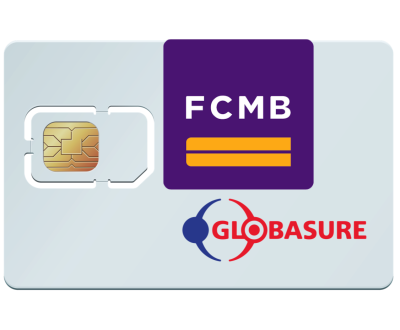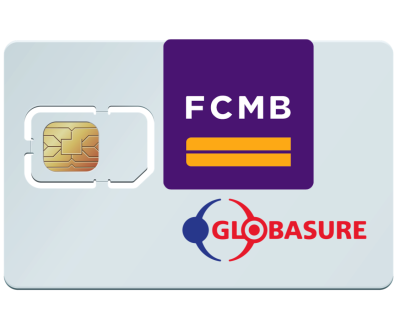Apparently following a request by the Anambra State government, the Central Bank of Nigeria, CBN, has agreed to organise a sensitisation programme for the Anambra business community and other stakeholders in Onitsha, Awka and Nnewi to acquaint them with the apex bank’s cashless policy.
Anambra is among six states where the CBN has commenced the sensitisation exercise because those states control about 90 percent of commerce and cash deposits in the country.
In the South-East, for instance, Anambra and Abia states were selected due to the high volume of commercial activities in Onitsha and Aba. The other states in the current phase of the CBN’s cashless policy implementation are Lagos, Ogun, Rivers and Kano.
Though the exercise was to have taken effect from July 1, 2013, it has been shifted to October 1 this year, perhaps to allow for more public enlightenment.
Not surprisingly, businessmen who spoke to Globasure News Updates were delighted that the take-off of the policy was postponed, even as they declared their preparedness to embrace it ultimately.
CBN Deputy Governor, Operations, Tunde Lemo, had during an interactive session by officials of the bank with Governor Peter Obi and members of the state executive council in Awka, said the exercise was part of the policy of the apex bank to stabilise the country’s economy by checkmating the risks involved in moving cash.
While responding to Governor Obi’s request that the CBN should organise the sensitisation programme for residents before the takeoff of the policy – especially the business community which moves large sums of money about in the course of transacting their business – Lemo assured that he would personally lead the team to Onitsha in view of the importance of the new policy.
“I commit myself to lead the team to Onitsha so as to explain the details to the people. We want to start this policy because it is only when we start that we will know the teething problems and hiccups,” he said.
Besides reducing the cost of transaction, Lemo assured that the cashless policy would check the menace of kidnapping in the state and leakages in government revenue.
According to him, once the policy takes off, withdrawals above N3000, 000 would attract a 3 per cent surcharge, while those above N3 million would come with a surcharge of five percent – adding that the policy would bring stability into the country’s Gross Domestic Product, GDP.
He said further: “There are various gains of this policy. Apart from checking corruption, it will reduce robbery, kidnapping, election rigging and even leakage in government revenue because nobody will be cheated by the electronic machine.
“It will also protect consumers and check fraud and is aimed at reducing the amount of physical cash circulating in the economy, encourage more electronic-based transactions for payment of goods, services, transfers and restrict the amount of cash to be deposited or withdrawn from customers’ accounts in a given day.”
In view of the nature of business transactions in the state, Lemo assured that the CBN would also assemble a formidable team that would convince residents of the need to embrace the new policy, adding that the apex bank would work with the Nigerian Communications Commission, NCC, and mobile telephone operators to ensure effective connectivity once the policy takes off.
On his part, Governor Obi commended the CBN for recognising the strategic role the state was playing in the sustenance of Nigeria’s economy, admitting that the policy would help stabilise the country’s growth. But he identified some bottlenecks in the proposed take-off of the policy in the state, on the ground that the transformation from cash to cashless was too sudden. Therefore, he pleaded with the CBN to make out time to educate the traders in Onitsha, Nnewi and Awka on the benefits of going cashless.
“I think we should embrace the cashless policy, but I still want to plead that we in Anambra should be given more time because the traders need more education and sensitisation concerning the new policy,” the governor said.
Traders want more time
Comrade Obi Ochije, a business man in Awka, said while the traders welcomed the new policy, they needed at least six months to get acquainted with the idea of transacting business without cash.
“We have already identified the advantages, among which is the fact that it will help reduce the crime rate as robbers would no longer have access to people’s cash to rob them. It will also reduce corruption and money laundering and encourage the use of electronic system of banking among traders,” he said.
“But there is a need for adequate awareness to be created because over 80 percent of traders are not yet convinced that it is not a ploy by government to code their bank accounts. Besides, many traders feel that it will slow down their businesses since they are used to doing business with cash,” he quipped.
Ochije said that though his commercial bank had helped him install a machine that could accept all kinds of credit cards, the epileptic nature of power supply in the country could be a hindrance if his customers should decide to credit his account using the machine in his shop.
Another trader, Kanayo Nweke, urged the CBN to first conduct a pilot programme before fully introducing the policy so as to monitor and identify its hiccups.
He observed that if Nigerians could embrace the Automatic Teller Machines, ATM, which had proved to be very useful, they would definitely welcome the cashless policy.
Other traders in Onitsha, Awka and Nnewi also disclosed that their commercial banks were already creating awareness about the new policy with text messages reminding them of its imminent take-off in October.
Globasure is a provider of simple, smart payment solutions.
More from our blog
See all postsRecent Posts
All Website Tags
Leave a Comment cancel
This site uses Akismet to reduce spam. Learn how your comment data is processed.








 WhatsApp us
WhatsApp us